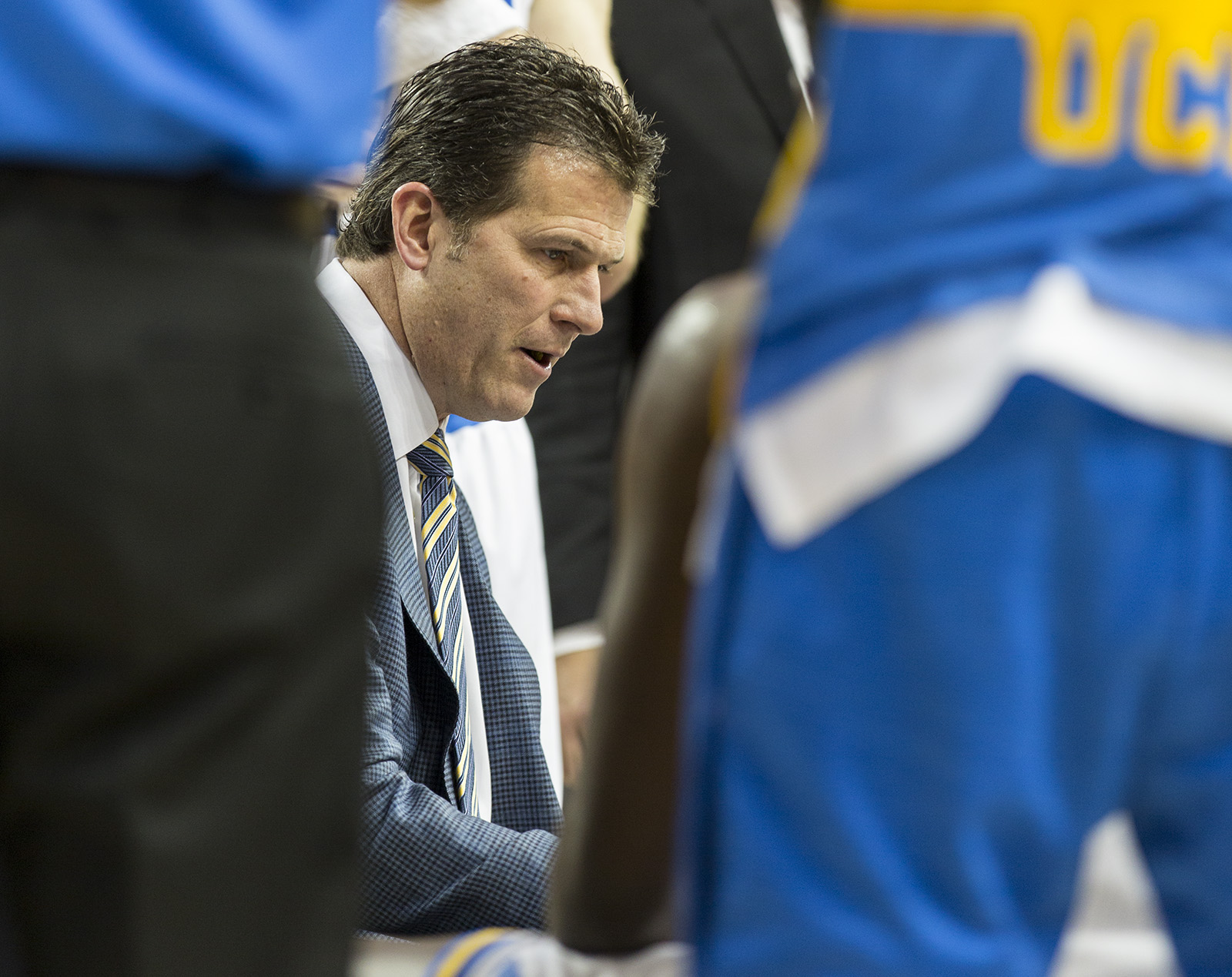The Hull Shebang: Bring the coaches into the classroom

Men’s basketball coach Steve Alford signed a $18.2 million contract that expires after the 2019-2020 season. He stands to make more than $2.7 million this year. (Daily Bruin file photo)
By Michael Hull
Oct. 18, 2016 11:53 p.m.
The teaching profession contributes more to the future of our society than any other single profession.
While I’d love to take credit for this – hello professors – I won’t. This isn’t from me, it’s from John Wooden.
The man who would go on to become the best collegiate basketball coach in NCAA history started his coaching career at a high school, where he also served as an English teacher. He would participate in both realms at Indiana State Teachers College after that as well, before becoming the Wizard of Westwood.
In a similar fashion, Duke basketball coach Mike Krzyzewski teaches MBA students in the The Fuqua/Coach K Center on Leadership and Ethics.
Krzyzewski has the same kind of qualities Wooden had – unique charismatic abilities, unparalleled communication skills and mentorship capabilities that have facilitated the growth of hundreds of young adults, both in basketball and in life.
And while those two are some of the first coaches to come to mind, there are tens of thousands across the three NCAA divisions that too have those characteristics.
So why don’t more of them teach?
Sure, in season, the men and women at the helms of teams have only 20 hours a week with athletes for practice and film, and the rest of the time goes toward travel, games and a seemingly endless amount of preparation. An actual lecture course would be too much – at the very least it would distract coaches from what their employment is inevitably tied to: winning.
But each quarter, this school has one-unit classes that would be perfect for coaches to share their knowledge and skills, and do so much more – coaches should be encouraged to teach fiat luxes.
The classes are low-pressure, with topics ranging from “The World of Opera” to, interestingly enough, “Teaching as Coaching: Coaching as Teaching,” and would be the ideal medium to bridge the bubbles between students and coaches’ worlds.
Plus, coach fiat luxes would be mutually beneficial for coaches and students alike.
Students could pursue valuable dialogue with people who, as aforementioned, are leaders in the field of interpersonal relations and management, and could absorb their soft skills through something as simple as an “Evolution of Modern Sports” course.
And, hey, Chancellor Gene Block, UCLA’s PR would go through the roof. Having big names on campus dedicate something as little as one hour a week to engage with students who fill their stands and support their teams would look great on your next “Become a Bruin” brochure.
But it’d have to be a fiat lux. It’d be easy to give a once-off lecture – what means more to us is taking the time to get to know us.
So much of what coaches do on campus is ingrained in their own world, an inner athletics circle, that they’re distanced from the regular student body in ways they can’t even comprehend, simply because they have only been able to view UCLA through an athletics-first lens.
The lifestyles of the students that they interact with on a day-to-day basis are quite different from those of who many athletes refer to as “narps” – nonathletic regular people. It’d be a very easy way to get perspective that the coaches could reference in their own circles as well.
And when some coaches earn $2,744,493 and $3,514,771 in gross earnings, in part from students who pay for tuition and for Den Passes, is it not appropriate to give something back?
But most of all, the life skills all of UCLA’s coaches have, while incredibly useful in Division I athletics, have the ability to do so much more when they aren’t confined to just the playing field.
Broadening the horizons of narps and coaches alike would benefit all.


